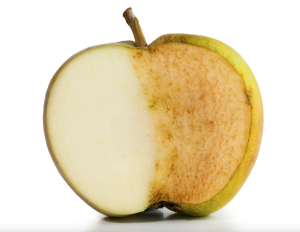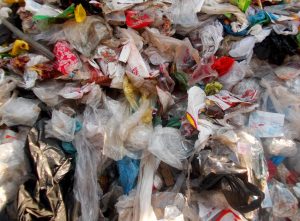What is Oxidative Stress?
Oxidative stress occurs when there is an imbalance between free radicals and antioxidants in the body, leading to cell damage. The excess free radicals can harm cells and tissues, affecting various components such as lipids (fats) and proteins essential for normal cellular function.
 Free radicals are chemical compounds produced naturally in the body, playing a crucial role in processes like converting food into energy and supporting the immune system. However, only low to moderate levels are necessary for optimal health.
Free radicals are chemical compounds produced naturally in the body, playing a crucial role in processes like converting food into energy and supporting the immune system. However, only low to moderate levels are necessary for optimal health.
These free radicals are unstable molecules because they lack an electron. To stabilise themselves, they seek out electrons from other molecules, which can cause damage.
In contrast, antioxidants help maintain balance by donating electrons to free radicals, stabilising them without causing harm to other important cells. This action promotes overall harmony within the body.
What are the Causes of Oxidative Stress?
Several factors can contribute to oxidative stress, with the most common being obesity, poor diet, chronic emotional stress, smoking, alcohol consumption, certain medications, and exposure to environmental factors like toxins, air pollution,
pesticides, and sunlight.
 Recently, there has been increased attention on the harmful effects of toxic chemicals and plastics. Modern industrialisation has led to the widespread use of plastics in many everyday products. Examples include plastic food packaging, polyester clothing, the release of phthalates from certain plastics, and many skincare products. Research indicates that micro-plastics released into the environment can significantly contribute to oxidative stress.
Recently, there has been increased attention on the harmful effects of toxic chemicals and plastics. Modern industrialisation has led to the widespread use of plastics in many everyday products. Examples include plastic food packaging, polyester clothing, the release of phthalates from certain plastics, and many skincare products. Research indicates that micro-plastics released into the environment can significantly contribute to oxidative stress.
Additionally, modern agricultural practices have resulted in a higher use of pesticides to protect crops from pests and diseases. However, this has also contaminated the soil where our food is grown, introducing toxic chemicals into our diets. Studies suggest that pesticide-related toxicity is also linked to oxidative stress.
How does Oxidative Stress impact Fertility?
Oxidative stress results in lipid peroxidation, disruption of membranes, depletion of adenosine triphosphate (ATP) energy, and abnormalities in protein formation. These effects can harm the female reproductive tract by damaging eggs and follicles, disrupting embryo implantation, impairing the endometrium, and affecting hormonal functions.
Further, oxidative stress also interacts with seminal plasma proteomes, adversely affecting male reproduction. High levels of oxidative stress can damage cellular components, particularly DNA, which decreases the likelihood of sperm successfully
fertilising the egg.
Things you can do to Reduce Oxidative Stress
Fortunately, there are many steps you can take to boost your antioxidants and maintain a healthy balance of oxidative stress. For women, it is important to recognise that improving egg quality can take time. The critical period is 3-4 months before trying to conceive, as follicle cells are still maturing and preparing to divide into egg cells. Therefore, any changes you make now will show results after that time.
Vitamins and supplements are a convenient way to enhance antioxidant activity. Recommended supplements include Vitamin C, Vitamin E, Vitamin D, Melatonin, Selenium, Zinc, Alpha-Lipoic Acid, and N-Acetyl Cysteine. It is advisable to consult with your fertility doctor or a qualified health practitioner to determine which supplements are appropriate for you and what dosages to take.
 Adopting a clean diet by choosing organic foods can help you avoid toxic pesticides. However, it’s worth noting that shopping for organic products can be expensive and may not always be realistic. Following the “Dirty Dozen” list can provide a practical guideline for selecting which fruits and vegetables to buy organic, as these are often more contaminated with toxic chemicals. This year’s Dirty Dozen includes: strawberries, spinach, collard greens, grapes, peaches, pears, nectarines, apples, bell peppers, cherries, blueberries, green beans, tomatoes, and celery.
Adopting a clean diet by choosing organic foods can help you avoid toxic pesticides. However, it’s worth noting that shopping for organic products can be expensive and may not always be realistic. Following the “Dirty Dozen” list can provide a practical guideline for selecting which fruits and vegetables to buy organic, as these are often more contaminated with toxic chemicals. This year’s Dirty Dozen includes: strawberries, spinach, collard greens, grapes, peaches, pears, nectarines, apples, bell peppers, cherries, blueberries, green beans, tomatoes, and celery.
Incorporating certain lifestyle changes can also be beneficial. The IVF process and fertility journey can be quite stressful, especially for those dealing with conditions like polycystic ovarian syndrome or endometriosis. Moderate exercise, such as yoga, walking, hiking, and strength training, is recommended, while high-intensity workouts should be minimised as they can increase oxidative stress. Reducing alcohol, smoking, and excessive caffeine consumption as soon as possible can also help lower oxidative stress. Aim for good quality sleep, about 8 hours of uninterrupted rest, so you wake up feeling refreshed.
Improving your Health to Reduce Oxidative Stress and Optimise Fertility
If you’re facing issues like poor diet, emotional stress, sleep disturbances, irregular bowel movements, or other health concerns, acupuncture and Chinese herbal medicine may help restore balance. Studies suggest that acupuncture can activate the parasympathetic nervous system, shifting the body from ‘fight or flight’ to ‘rest and digest,’ which lowers cortisol levels and reduces oxidative stress.
To make an appointment to start your journey towards a healthier you, you can book online here or give us a call on 0414 067 874.
This blog post was written by Dr. Wendy Le.

